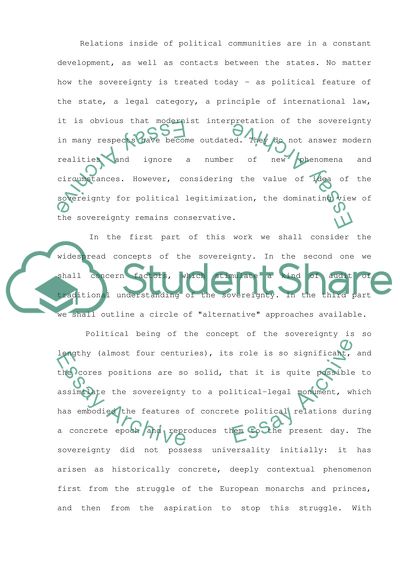Cite this document
(State Sovereignty in Post-Cold War Era Essay Example | Topics and Well Written Essays - 2000 words, n.d.)
State Sovereignty in Post-Cold War Era Essay Example | Topics and Well Written Essays - 2000 words. https://studentshare.org/politics/1712330-in-what-respects-if-any-has-state-practice-in-the-post-cold-war-era-challenged-existing-international-law-regarding-state-sovereignty
State Sovereignty in Post-Cold War Era Essay Example | Topics and Well Written Essays - 2000 words. https://studentshare.org/politics/1712330-in-what-respects-if-any-has-state-practice-in-the-post-cold-war-era-challenged-existing-international-law-regarding-state-sovereignty
(State Sovereignty in Post-Cold War Era Essay Example | Topics and Well Written Essays - 2000 Words)
State Sovereignty in Post-Cold War Era Essay Example | Topics and Well Written Essays - 2000 Words. https://studentshare.org/politics/1712330-in-what-respects-if-any-has-state-practice-in-the-post-cold-war-era-challenged-existing-international-law-regarding-state-sovereignty.
State Sovereignty in Post-Cold War Era Essay Example | Topics and Well Written Essays - 2000 Words. https://studentshare.org/politics/1712330-in-what-respects-if-any-has-state-practice-in-the-post-cold-war-era-challenged-existing-international-law-regarding-state-sovereignty.
“State Sovereignty in Post-Cold War Era Essay Example | Topics and Well Written Essays - 2000 Words”. https://studentshare.org/politics/1712330-in-what-respects-if-any-has-state-practice-in-the-post-cold-war-era-challenged-existing-international-law-regarding-state-sovereignty.


